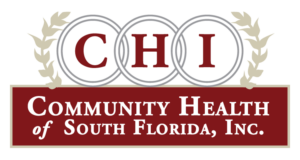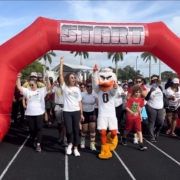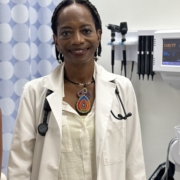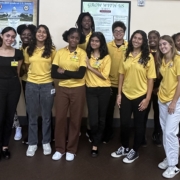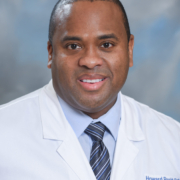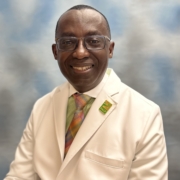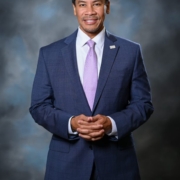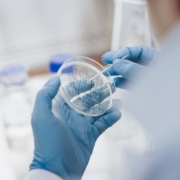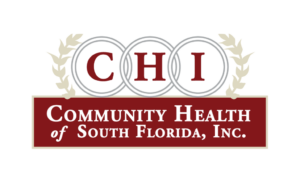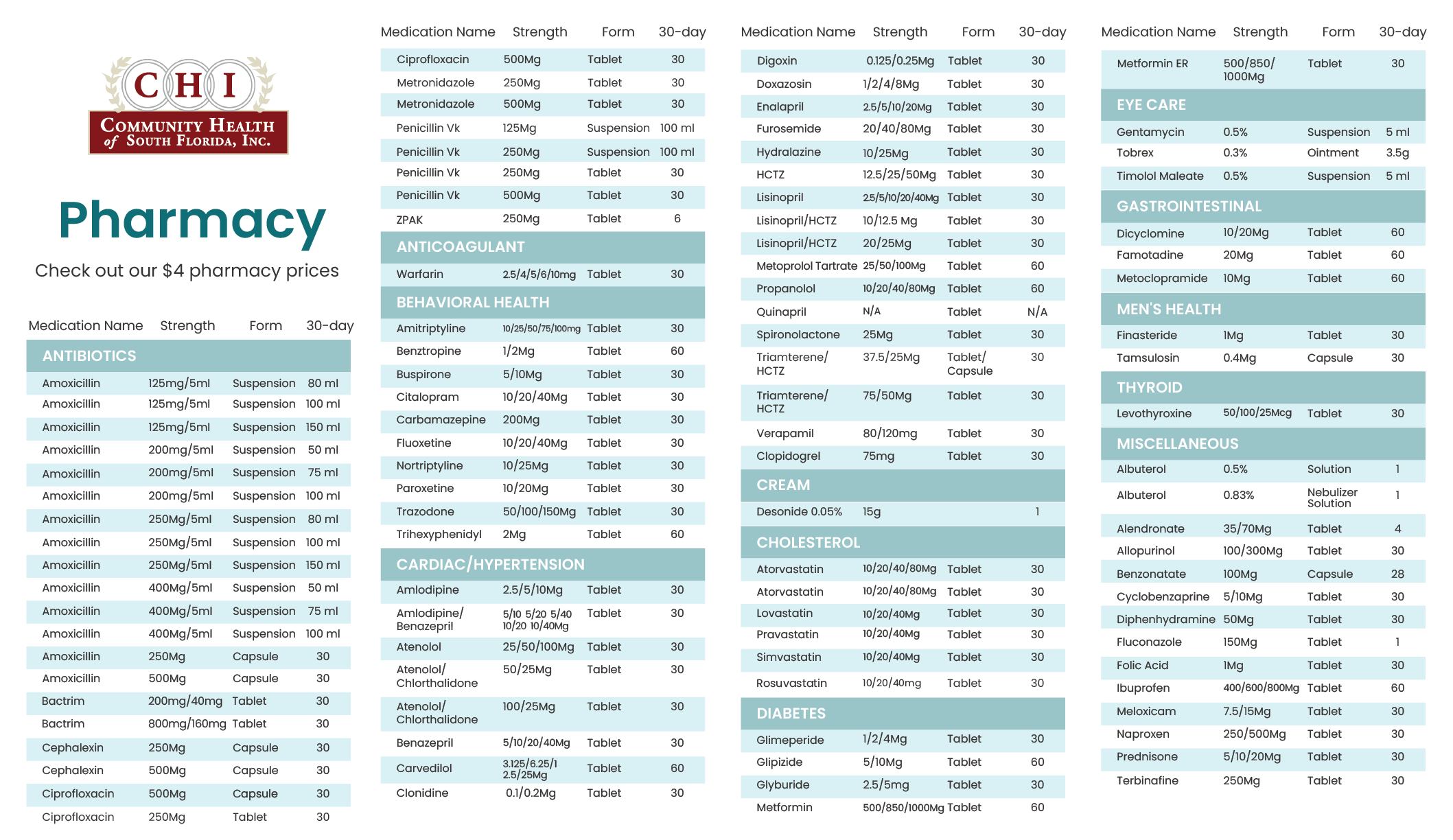CHI Hosts World AIDS Day Walk in Cutler Bay
/0 Comments/in NewsHaga clic en la bandera en parte superior de la página para traducir al español
Pezé sou drapo anwo paj la pou Kreyol
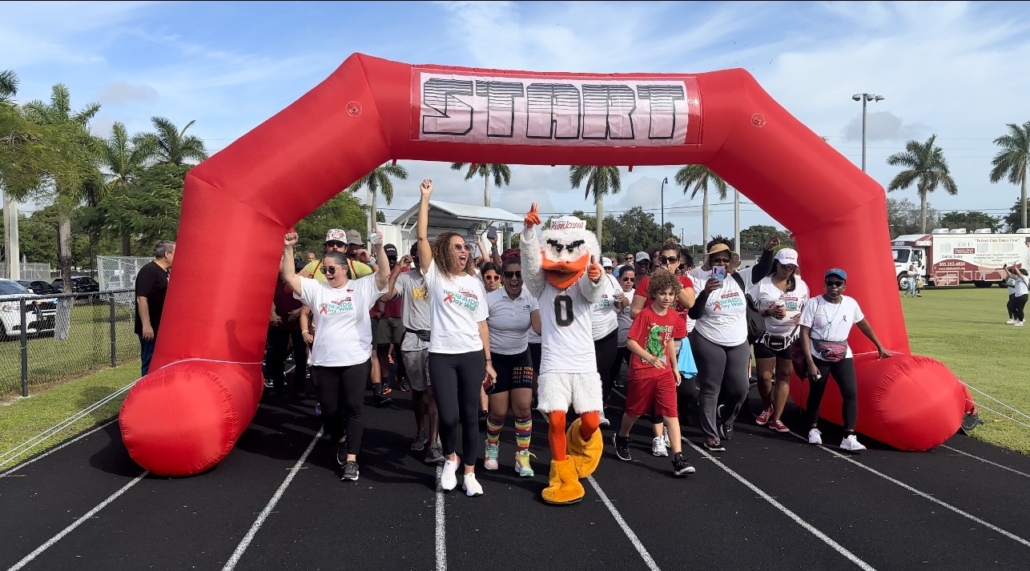
Hundreds laced up their sneakers to kick-off CHI’s Annual World AIDS Day Walk
Leo Martinez was diagnosed with HIV at the early age of 24. In his first decade of living with the disease, he experienced intense shame and heartache. “Coming out as HIV positive and gay, together, was a challenge, a huge challenge,” he said. “I won’t lie, I lost family members, I lost friends.”
Remarkably, Martinez remained confident that his diagnosis would be one of his biggest blessings and he would quickly realize why. He eventually made the conscious decision to transform his shame, reframe every negative aspect of life, and put a positive spin on it. Martinez detailed his road to living a normal life with HIV at Community Health of South Florida, Inc.’s World AIDS Day Walk at JL and Enid W. Demps Park on December 2nd.
Emceed by TK Owens, a seasoned non-profit professional and Miami native, the walk was organized to raise awareness for HIV and AIDS and to spread the message that HIV is preventable and treatable. Hundreds participated in the one-mile walk in Cutler Bay and enjoyed music with their family and friends.
Attendees had the opportunity to learn about testing and treatment. Many were moved by the dozens of red kites flown above to commemorate those who have lost their lives to the disease.
In a speech to the audience, Dr. Edwin Bosa Osorio, a physician at CHI, reflected on the virus’s devasting impact on healthcare and the country four decades ago.
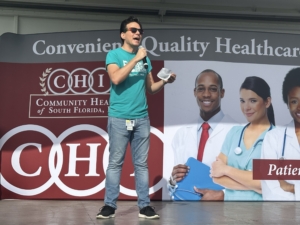
Leo Martinez, who was diagnosed with HIV at the age of 24, gave a heartfelt speech to the audience
“Back in the day, having HIV was a death sentence. We have all heard that story because there was no treatment,” he said. “Slowly but surely, we started getting new things like testing. We can now say that HIV is no longer a death sentence!”
Martinez is proof that life continues after a diagnosis. At this stage in his life, he credits his ability to thrive with HIV, to a growth mindset.
“The mistakes I made were teaching me discernment and building resilience,” he said. “Now, I can push myself to achieve greater things. The situations that did not work out led me to my calling!”
Our Compassionate Team Serving You
/in NewsHaga clic en la bandera en parte superior de la página para traducir al español
Pezé sou drapo anwo paj la pou Kreyol
Dr. Cheryl L. Holder is one of CHI’s newest internal medicine providers at the Doris Ison Health Center. She will also serve as residency program faculty for the Brodes H. Hartley, Jr. Teaching Health Center. She is a graduate of Princeton University and George Washington University School of Medicine. Dr. Holder has dedicated her career to improving the health of underserved populations as a National Health Service Corp Scholar, Internist, and HIV specialist. She is a fierce advocate for climate change and had the wonderful opportunity to host her own TED talk on the subject. Dr. Holder brings a wealth of knowledge and experience to this role and is excited to be at CHI, continuing her work of giving back to the South Florida community.
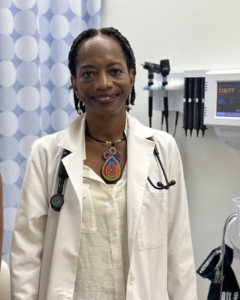
Dr. Cheryl L. Holder joinged CHI in 2023
Esmeralda Torres, PFSS, works at the Martin Luther King Jr. Clinica Campesina Health Center. She has been a devoted employee at CHI for 23 years. A self-proclaimed “people person,” she loves what she does and enjoys helping the community. The most rewarding part of her job is helping people. She takes great pride in putting a smile on their faces and seeing them return after a successful visit with a provider. It is a rewarding feeling when patients thank her for connecting them with a doctor. Beyond her professional commitments, Torres’ pride and joy is her family. She often spends her free time with her two children and grandchildren. She is passionate about teaching them the importance of family.
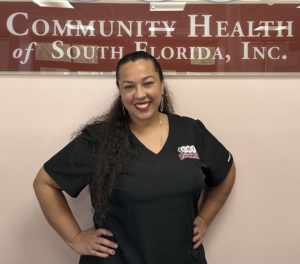
Esmeralda Torres at Martin Luther King Jr. Clinica Campesina Health Center
CHI Provides a Bright Future for Youth Volunteers and Interns
/in NewsHaga clic en la bandera en parte superior de la página para traducir al español
Pezé sou drapo anwo paj la pou Kreyol
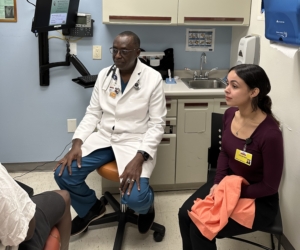
Campodonico watches closely as Dr. Amofah discusses a patient’s care during an appointment.
From an early age, Vanessa Campodonico knew that she always wanted to be a doctor. Interning at Community Health of South Florida, Inc. (CHI) this summer marked a step toward becoming the well-rounded doctor she always dreamed of becoming.
“I have shadowed at a big hospital before,” she said. “Today, I get to see the difference between a hospital and a smaller community health center.”
Vanessa is one of three youth volunteers and interns who had the opportunity to shadow CHI’s Chief Clinical Officer, Dr. Saint Anthony Amofah for a day. These interns aspire to work in the healthcare field and were excited to have a practical look into the career of a family medicine physician. They also were among several other volunteers who joined CHI this summer for hands-on learning and a deeper understanding of diverse healthcare roles. Interns and volunteers had the chance to work and learn in a variety of departments including patient services, pharmacy, event planning, clerical services and more.
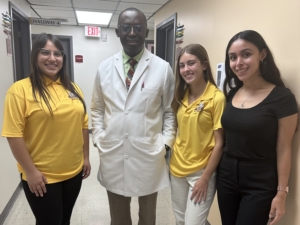
(From left to right) Aixya Montaya, Dr. Amofah, Natalie Calvo and Vanessa Campodonico pose for a photo at the Doris Ison Health Center.
Natalie Calvo and Aixa Montaya joined Vanessa on their day with Dr. Amofah. It started with a team huddle in the morning. This is a time when CHI providers are briefed on the day’s schedule, get up to speed on the patients of the day and create team plans for care. The interns were treated to the full clinical experience, actively participating alongside Dr. Amofah, and absorbing his approach to medical practice. Individually, they were provided with the opportunity to observe a patient appointment, learning important procedures under Dr. Amofah’s guidance. He expressed the importance of developing great customer service skills and treating patients with kindness.
“The most important thing is that patients need our help,” he said. “We owe it to them to be extraordinarily nice. You have to make sure they feel good!”
Each intern had a one-on-one with Dr. Amofah while reviewing patient charts before appointments. They reviewed patients’ blood pressure and cholesterol levels. During this time, they shared with him their goals and what they hoped to take from the day’s experience. Montaya, who is currently a senior at a local collegiate high school, dreams of one day being an emergency room physician.
“I have wanted to work in medicine since I was young,” she said. “My current goal is to graduate with my associate degree and get my high school diploma. From there, go to college and go to medical school.”
By the end of the day, the interns gained valuable perspectives into the routine schedules of a family medicine provider. These experiences will significantly influence their career making decisions moving forward. Dr. Amofah was thrilled to play a role in the process.
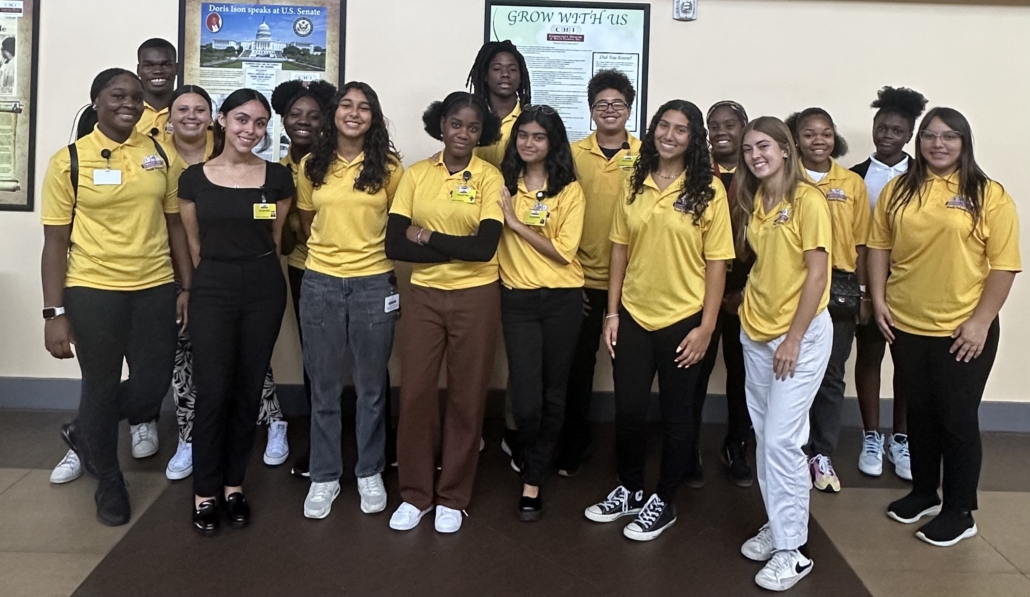
The 2023 youth volunteers and interns are all smiles on the final day of this year’s summer program.
“My favorite part of this experience is seeing the eagerness in their faces, knowing the potential that they have and knowing that I can provide support and encouragement,” he said. “Whatever we can do or say that will give them a sense of confidence, I love that!
Silent Crisis: Understanding the Causes of Rising Suicide Rates
/in NewsHaga clic en la bandera en parte superior de la página para traducir al español
Pezé sou drapo anwo paj la pou Kreyol
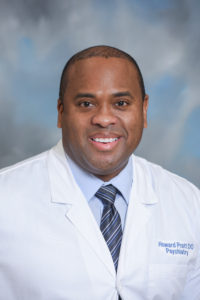
Behavioral Health Medical Director, Dr. Howard Pratt
In 2022, suicide deaths rose approximately 2.6 percent from the prior year, according to The Centers for Disease Control and Prevention (CDC). The shocking rise brings the CDC’S estimated number of deaths to nearly 50,000, revealing an alarming trend in suicide rates. Dr. Howard Pratt, Behavioral Health Medical Director at Community Health of South Florida, Inc. (CHI) highlights the concerning nature of this situation.
“Suicide rates have been increasing in the United States for several decades,” he said. “Anxiety and depression are at an all-time high. More than 49,000 people we know have died by suicide, but that number is not fixed, it is something that is going to increase as we investigate this a bit more.”
CDC research suggests that the rise in suicide rates is due to factors such as limited access to healthcare and job and financial problems or loss. This has unfortunately created a sense of hopelessness in some groups who were already experiencing daily stresses. Social distancing during the pandemic also had a lasting impact on people’s mental health, according to Dr. Pratt.
“During the pandemic, people were left with more time to themselves,” he said. “When you take away the distractions of everyday life, you get faced with having to deal with the way you have been feeling for a long time.”
One group that saw the largest increase in suicide deaths in 2022 was people ages 65 and older.
“For the elderly and for all people, having a sense of purpose is really important,” Dr. Pratt said. “Especially for this age group, part of their identity has been that they are strong, and they are the support of their family. They were just at a state where they never talked about their mental health and now for the first time, they are seeking help and that was the group that had the largest increase in suicide. It was a 35% increase in people over the age of 65.”
Mental health plays a vital role in our overall well-being. With suicide being one of the leading causes of death in the United States according to CDC data, Dr. Pratt urges those who are struggling with their mental health to speak to a professional as soon as they can. CHI offers behavioral health services and aims to connect the community to essential care.
“At CHI you have people like me, I am an adult and child psychiatrist, we have therapists here, we have a lot of resources,” he said. “Connecting to resources is the most important thing. It might not start with behavioral health; it may be with your family physician. With kids, it may be at school. At CHI, patient care comes first and that includes mental health.”
CHI’s Dr. Saint Anthony Amofah Awarded Prestigious Award
/in NewsHaga clic en la bandera en parte superior de la página para traducir al español
Pezé sou drapo anwo paj la pou Kreyol
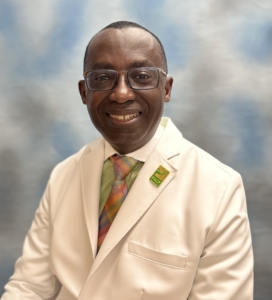
A big congratulations to our Dr. Saint Anthony Amofah who recently won the prestigious 2023 Health Professions Education and Training Award from the National Association of Community Health Centers! Over the course of his impressive nearly 30-year career, Dr. Amofah has touched countless lives and continues to do so with compassion.
As the Chief Clinical Officer at Community Health of South Florida, Inc. (CHI) and Chief Academic Officer for the Brodes H. Hartley, Jr. Teaching Health Center, he deeply cares for his patients and dedicates his efforts to fostering the next generation of healthcare professionals. This welldeserved award recognizes his dedication to contributing valuable guidance and clinical education to residents and fellow CHI health professionals. Dr. Amofah is both an innovator and committed provider of service to the South Florida community and CHI is grateful to have him!
Boosting Health In Our Community
/in NewsHaga clic en la bandera en parte superior de la página para traducir al español
Pezé sou drapo anwo paj la pou Kreyol
A place that has made sure everyone has high-quality healthcare for more than 50 years.
September 15 to October 15 is Hispanic Heritage Month, a special time to celebrate the culture, history, and strength of Hispanic people. But, it is also important to talk about Hispanic health.
“Good health means understanding what everyone needs. At Community Health of South Florida, Inc. (CHI), we’re working hard to better understand and help with the health problems that are common in our community,” says Dr. Edwin Bosa-Osorio, MD at CHI.
One out of every five Hispanics does not have health insurance, which is much higher than non-Hispanic whites. Without insurance, doctor visits can cost a lot, so some people skip important health check-ups. But at CHI, there is healthcare for everyone. They have a team of enrollment specialists to help people enroll in different insurance plans. Even if someone doesn’t have insurance, CHI still offers highquality healthcare on a sliding fee scale based on the person’s income.
“Living a long life is great, but we want it to be a healthy one,” said Dr. Bosa-Osorio. “We’re here to help everyone get the medical care they need, regardless of their income.”
According to the Centers for Disease Control and Prevention, Hispanics have higher rates of cancer, heart disease and diabetes. In 2020, a big cause of death was COVID-19. Plus, Hispanic people also struggle more often with being overweight and pregnancy and birth issues.

“Some of these things develop in part by genetic factors,” said Dr. Bosa-Osorio. But some of it is due to lifestyle, diet and exercise. As a clinician, I look at all the factors and find the best treatment plan for that individual.”
But CHI can help keep our community healthy. With many health services, from pediatrics to family medicine, dental care, OB/GYN, urgent care, behavioral health and much more—CHI can help patients and their whole families live healthy lives.
“We do more than just fix problems. We want everyone to be fully healthy. At CHI, we want people in the Hispanic community to know they’re important, heard, and taken care of,” Dr. Bosa-Osorio explains.
This month, while celebrating the rich culture and history of Hispanic people, the CHI team reminds everyone that health matters and that they are always ready to help and support everyone in the community.
Do you want to focus on being healthy? Need to know more or make an appointment? Visit chisouthfl.org or call (786) 272-2100. Let’s make our whole community healthier together.
A Message From The President & CEO
/in NewsHaga clic en la bandera en parte superior de la página para traducir al español
Pezé sou drapo anwo paj la pou Kreyol
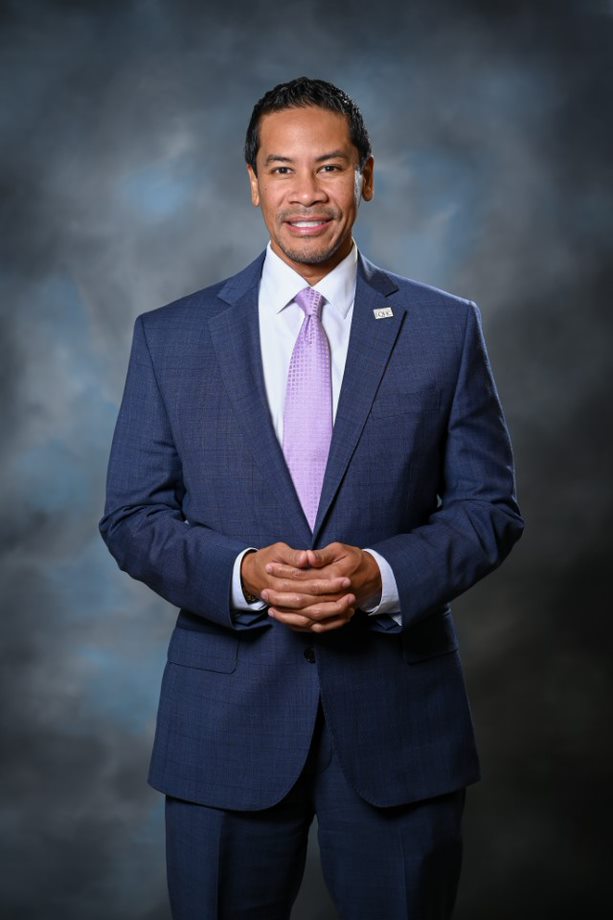
The future strength of your healthcare hangs in the balance as Congress debates funding for Community Health Centers, the National Health Service Corps, and Teaching Health Centers across the nation. Unless Congress takes action, more than 1,400 health centers throughout the U.S., including Community Health of South Florida, Inc. (CHI), will not have access to critical funding to provide care to more than 31 million patients. Nearly 9 million of those are children and all of those patients deserve access to high-quality, compassionate healthcare, regardless of income or insurance status.
CHI’s Brodes H. Hartley, Jr. Teaching Health Center Graduate Medical Education (THCGME) program will celebrate its 10-year anniversary of training doctors in family medicine and psychiatry and it depends on financial support to continue developing the next generation of doctors. A majority of the graduates across the nation stay in community health and some of the graduates from CHI’s program have remained in Miami-Dade County. With a doctor shortage projected, legislators cannot afford to skip workforce funding like this.
CHI is not mine—it’s all of ours. It’s a resource that keeps my family healthy and safe and does the same for communities throughout Miami-Dade and Monroe counties. It is all of our responsibilities to let congressional leaders know that they must fund community health and teaching health centers. The welfare of our communities depends on it. Please reach out to your Congressional leader and tell them to fund these key programs.
On another note, many of us have pushed COVID-19 into the back of our minds, eager to forget it. But now is not the time to forget. As you will read in this edition of the newsletter, COVID-19 rates are again increasing and we need to be vigilant. Make sure you and your loved ones are vaccinated, which you can do at any CHI health center.
It’s also flu season, so if you don’t have your flu vaccine, we suggest you get it here at CHI. We want you to be healthy as we head into the holiday season and this is one of many ways that can help you enjoy your time with your families.
Let’s advocate for a healthy family, a healthy home and a healthy nation together.
Yours Truly,

Blake Hall
Decoding the Newcovid-19 Variants: What You Need to Know
/in NewsHaga clic en la bandera en parte superior de la página para traducir al español
Pezé sou drapo anwo paj la pou Kreyol
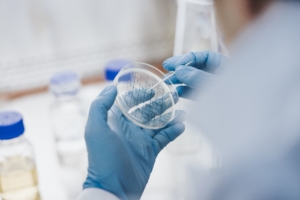
We are not yet out of the woods with COVID-19, according to the Centers for Disease Control and Prevention. This summer season, BA.2.86 and EG.5 emerged as new strains of the virus that causes COVID-19. All viruses evolve over time and these strains are called “variants.” These changes can affect how contagious a virus is and how severely it affects people. The latest variants have already initiated a surge in infections across the country. According to the World Health Organization (WHO), EG.5 became the dominant variant in August 2023, and they have labeled it as a “variant of interest.” BA.2.86, although less widespread, carries many variations.
“EG. 5 currently represent 25% of all COVID-19 cases,” said Community Health of South Florida, Inc. (CHI) Infection Control Specialist, Lara Nazon. “The same precautions should be taken as with earlier variants.”
The rise in cases is concerning. However, there have been no reports of an increase in disease severity, WHO states.
“Symptoms for these strains are less severe. However, it is more contagious and spreads faster,” said Patricia Philippe, Director of Education Infection, Prevention and Control at CHI. “That is why we are seeing an increase in cases.”
Philippe also says that low testing numbers are contributing to the spread of the disease.
“People are testing less,” she said. “Some are thinking that if they do not test, they are not infected.
The WHO also warns that even though the risk for severe cases and hospitalizations with the EG.5 variant is low; people should still take precautions. Philippe stresses that certain groups are more vulnerable to the disease and that adopting the necessary measures to protect you and your family will make a meaningful impact.
“Someone who is immunocompromised or has a weaker immune system can contract the disease from an asymptomatic person,” Philippe said.
“If you have COVID-19, it is important to protect your families, especially the elderly. You must test and isolate yourself as soon as you experience symptoms. Hygiene, social distancing and washing your hands will help to slow transmission.”
The CDC and other experts are closely monitoring both variants. More data is needed to see how the viruses will trend.
“We are in close contact with the CDC and are following COVID-19 guidelines,” said Philippe. “There is currently a peak at this time but in terms of severity and how it will trend, we do not yet know.”
Nazon advises people to not let their guard down. The most important preventative measure is to be up to date with COVID-19 vaccines and boosters and stay informed on how the virus is transmitted.
“COVID-19 is still here, and it is still spreading the same as before,” Nazon said. “If you are in a crowded or closed space, wear your mask. If you are coughing and have symptoms, wear a mask, and always maintain good hygiene.”
Multiple Sclerosis: Early Treatment May Slow Disease Progression
/0 Comments/in Articles, News- Researchers investigated how early treatment for multiple sclerosis (MS) affects health outcomes.
- They found that earlier treatment is linked to a lower risk of disability later on.
- Seeking diagnosis and early treatment for MS at the onset of symptoms could improve patient quality of life.
Main Location
- 10300 SW 216th St.
- Miami, FL 33190
- (305) 253 - 5100
- Get Directions
